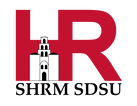Competencies Overview
A competency is a cluster of highly interrelated attributes, including knowledge, skills, and abilities (KSAs) that give rise to the behaviors needed to perform a given job effectively.
Competencies can be either technical or behavioral. Technical competencies reflect the knowledge required to perform a specific role. Behavioral Competencies describe the KSAs that facilitate the application of technical knowledge to job-related behavior. In other words, technical competencies reflect what knowledge HR professionals apply to their jobs, and Behavioral Competencies reflect how they apply this knowledge.
A competency model is a set of competencies that collectively defines the requirements for effective performance in a specific job, profession, or organization. The SHRM Body of Applied Skills and Knowledge™(SHRM BASK™) is a competency model that defines both behavioral competencies and the knowledge areas necessary for HR professionals to perform effectively in the workplace. The behavioral competencies are grouped into three clusters: Leadership (Leadership & Navigation, Ethical Practice, and Diversity, Equity, and Inclusion), Interpersonal (Relationship Management, Communication, and Global Mindset), and Business (Business Acumen, Consultation, and Analytical Aptitude). The knowledge domains are grouped into three domain areas: People (HR Strategy, Talent Acquisition, Employee Engagement & Retention, Learning & Development, and Total Rewards), Organization (Structure of the HR Function, Organizational Effectiveness & Development, Workforce Management, Employee and Labor Relations, and Technology Management), and Workplace (Managing a Global Workforce, Risk Management, Corporate Social Responsibility, US Employment Law & Regulations).
Competencies can be either technical or behavioral. Technical competencies reflect the knowledge required to perform a specific role. Behavioral Competencies describe the KSAs that facilitate the application of technical knowledge to job-related behavior. In other words, technical competencies reflect what knowledge HR professionals apply to their jobs, and Behavioral Competencies reflect how they apply this knowledge.
A competency model is a set of competencies that collectively defines the requirements for effective performance in a specific job, profession, or organization. The SHRM Body of Applied Skills and Knowledge™(SHRM BASK™) is a competency model that defines both behavioral competencies and the knowledge areas necessary for HR professionals to perform effectively in the workplace. The behavioral competencies are grouped into three clusters: Leadership (Leadership & Navigation, Ethical Practice, and Diversity, Equity, and Inclusion), Interpersonal (Relationship Management, Communication, and Global Mindset), and Business (Business Acumen, Consultation, and Analytical Aptitude). The knowledge domains are grouped into three domain areas: People (HR Strategy, Talent Acquisition, Employee Engagement & Retention, Learning & Development, and Total Rewards), Organization (Structure of the HR Function, Organizational Effectiveness & Development, Workforce Management, Employee and Labor Relations, and Technology Management), and Workplace (Managing a Global Workforce, Risk Management, Corporate Social Responsibility, US Employment Law & Regulations).
